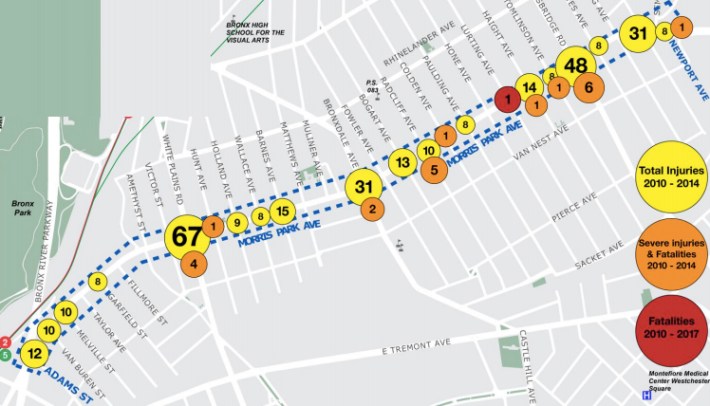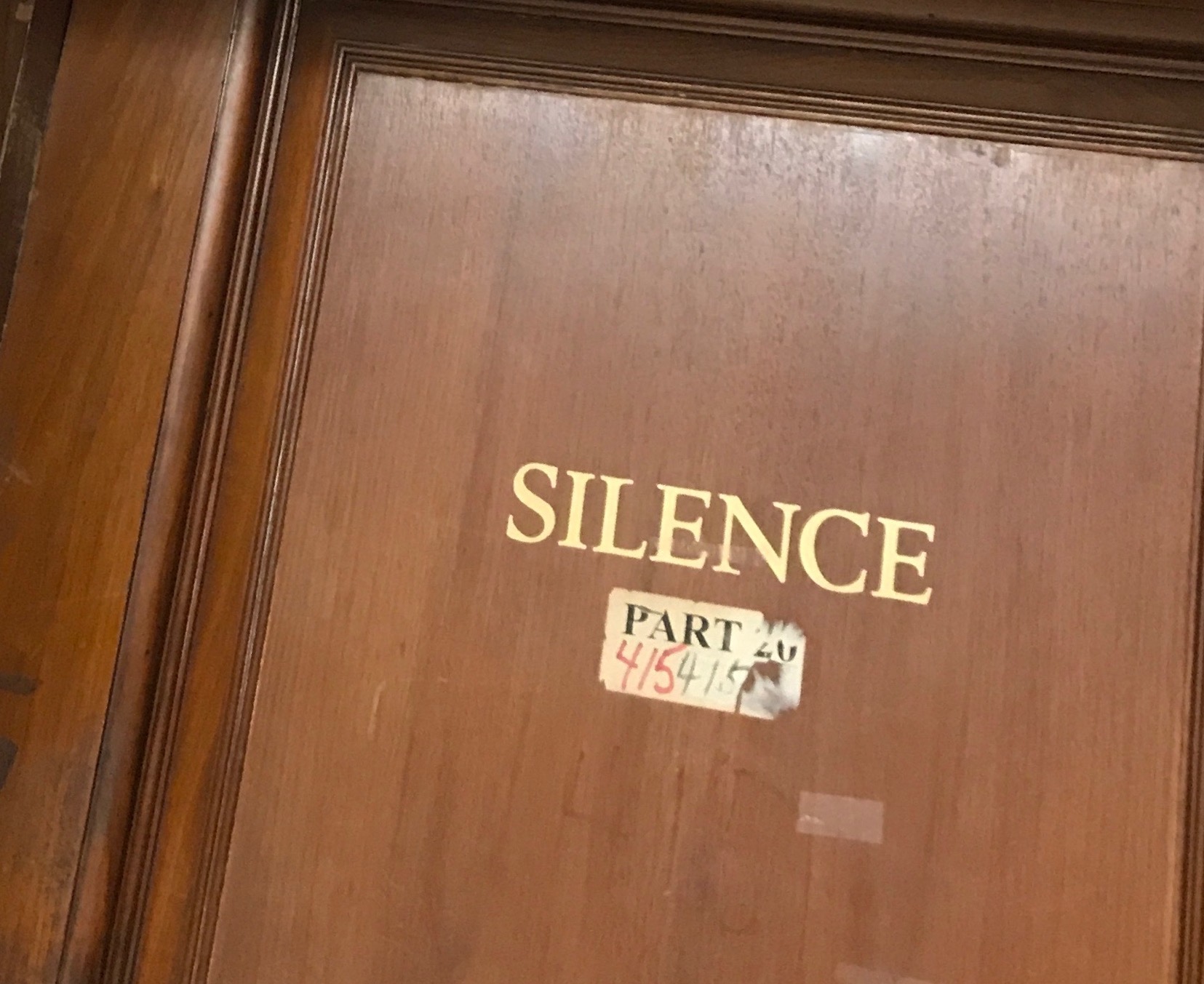Well, recuuuse me (and me, and me, and me, too)!
A fourth Bronx judge has declined to participate in a lawsuit brought by a group of Morris Park Avenue business owners and the local Council member to stop a street redesign project, citing “community ties.”
Judge Alison Tuitt is the fourth judge to recuse herself in the so-called “road diet” case. Tuitt herself did not appear in her Bronx Supreme courtroom on Monday but sent out her court attorney Alicia Gerez to deliver the bad news that the case had again been delayed for questionable reasons.
“Some of the judges have community ties,” Gerez told lawyers from the Morris Park plaintiffs and the city Law Department, who’ve heard it all before.
Three other judges have recused themselves in the case, which was filed last month and argues with thin legal basis that the city has no right to convert the neighborhood’s main strip from a dangerous four-lane speedway where scores have been injured into a three-lane roadway with a center turning lane and a painted bike lane.
That configuration has proven successful in other neighborhoods, but has consistently been decried by a small group of business owners and Council Member Mark Gjonaj.

All the parties are waiting in the courthouse this morning to hopefully get another judge who will hear the case, which seeks to put Mayor de Blasio and his Vision Zero initiative on trial.
“They’re recusing themselves because they’re afraid to go against the city,” said Al D’Angelo, one of the plaintiffs and a member of the local community board.
A judge has grounds for recusal only if there is an “actual or perceived” conflict, a Law Department spokesman said. In a small county with an entrenched political machine, one could find perceived conflicts anywhere.
There have been six judges overall, including the four who opted out, one who was “unavailable,” and the judge who issued a temporary restraining order last month that prevented the city from beginning work on the project.






